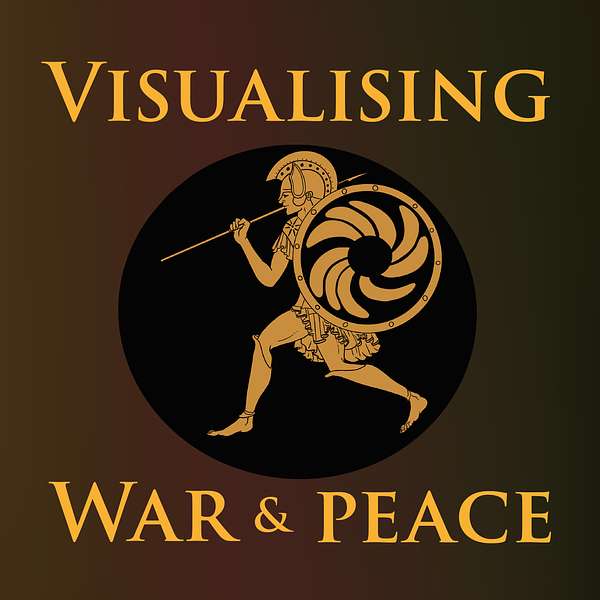
Visualising War and Peace
How do war stories work? And what do they do to us? Join University of St Andrews historian Alice König and colleagues as they explore how war and peace get presented in art, text, film and music. With the help of expert guests, they unpick conflict stories from all sorts of different periods and places. And they ask how the tales we tell and the pictures we paint of peace and war influence us as individuals and shape the societies we live in.
Visualising War and Peace
Visualising Young People as Peacemakers with Helen Berents
In this podcast Alice interviews Dr Helen Berents, a senior research fellow in the School of Justice at the Queensland University of Technology in Brisbane, Australia.
Helen’s research focuses on the involvement of children and young people in international conflict and peace-building processes, and she advocates strongly for wider recognition of their contributions and capacities in navigating violence and building peace. Her book Young People and Everyday Peace explores the presence and influence of youth voices in everyday efforts to respond to ongoing violence and insecurity in a small community in Soacha, Colombia. She has also looked at adult representations of children and young people in contexts of crisis and conflict, comparing them with the stories that young people tell themselves when given the chance. Helen is currently working on a project funded by the Australian Research Council on Youth Leadership and the Future of Peace and Security, exploring the role of youth-led advocacy and engagement in building more inclusive, durable forms of peace in different parts of the world. One aim is to improve the ways in which young people are supported and empowered in conflict-affected contexts; another is to develop new recommendations for the involvement of young people in peace and security policies in future.
In the podcast Helen discusses widespread assumptions about children and childhood, which condition us to view them as victims in need of protection rather than as experts or agents in peace-building contexts. As Helen explains, it is important to be mindful of their potential vulnerabilities; but this can be compatible with recognising their lived experiences of conflict as valuable forms of expertise. We discuss the places where children are typically thought to 'belong' in times of war and peace, the images of child victims of conflict that often go viral, and the long-running marginalisation of their voices. But we also consider the work that young people have been doing in many different parts of the world to make their voices heard, and the impact of the UN's Youth, Peace and Security agenda.
Along the way, Helen talks about the differences between 'liberal', top-down peace and grassroots, 'everyday' peace. Citing Veena Das and Christine Sylvester among others, Helen explains why we cannot simply study war and peace 'from the high places' (i.e. solely from the perspective of governments or abstract ideals) and why we need a 'descent into the ordinary' to excavate multiple lived experiences of violence and peace-building rooted in the everyday. Above all, Helen invites practitioners and policy-makers to consider what changes adults need to implement to make more space for children in different peace-building contexts, including recalibrating what 'expertise' looks like and ceding power to young people. We hope you enjoy the episode!
You can find out more about Helen's work here. For a version of our podcast with close captions, please use this link. Please visit the University of St Andrews Visualising War website for more information about our project.
Music composed by Jonathan Young
Sound mixing by Zofia Guertin